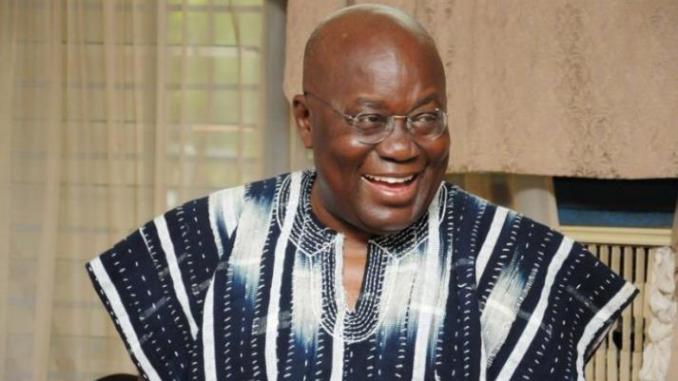Education as the bedrock of world economies has been considered top priority since it forms the basis upon which responsible citizens are built, however, the educational systems in Africa though striving towards quality may not have reached its peak as a result of a perceived negligence in that sector.
In an exclusive interview with African Leadership Magazine, Nigeria’s Honorable Minister of State for Education Professor Anthony Anwukah gives a detailed account of some of the ministry’s activities geared towards an improved educational system in the country. Excerpt:
Basic education has been identified as one of the key factors necessary in the development of responsible members of the society. What steps have been taken to unify basic education standards across the country?
Basic Education level constitutes the bedrock and foundation of the Education system in Nigeria. It is on the basis, that Government places vital interest on the education received at this level. Basic Education provided by Government nationwide is compulsory, free, universal and qualitative. It comprises 1 year of pre-primary; 6 years of primary education; 3 years of Junior Secondary Education.
Some of the steps taken to unify basic education standards across the country include the development, production and distribution of the one year pre-primary school curriculum and the revised 9- year Basic Education Curriculum for Primaries 1-3, Primaries 4-6, and, JSS 1-3. for the UBE programme to Basic Education schools nationwide; the development, production and distribution of National Policy for Integrated Early Childhood Development in Nigeria to all Pre-primary schools nationwide; and the development, production, and distribution of Teachers Guide on one year Pre-primary School Education Curriculum to all Pre-primary Schools nationwide.
The Federal Ministry of Education as the apex Ministry in-charge of standards has also put in place the junior Secondary Education Branch under Basic and Secondary Education Department of the Ministry, to Handle matters on harmonization and standardization of Basic Education nationwide. Some of the annual activities of the branch include the Annual Monitoring of the conduct of Basic Education Certificate Examination [BECE] nationwide; Organization of one Week Intensive Workshop for Junior Secondary School Teachers in the 6 Geo-political Zones of Nigeria, on acquisition of skills on Item Writing; The Bi-Annual Review Meetings of Registrars/ Directors of States/FCT Examination Bodies on Standardization and Harmonization Of Basic Education Certificate Examination nationwide; Regular/ Periodic inspection of schools nationwide by the Federal Quality Assurance Department of the Ministry to ensure standards; Organisation of Sensitisation workshop for SOMEs/SUBEBs, FCT Education Secretariat, FCT UBEB Examination officers on effective implementation of the revised 9-year Basic Education Curriculum; Organization of sensitization workshop for principles of Junior Secondary Schools nationwide [to be organized on Geo-Political Zone basis]; and the distribution of Guidelines on Harmonized Procedures and Standards for the Basic Education Certificate Examination [BECE] to all states and FCT. This is to ensure that implementers have a working document that will enable uniform standards in pre-BECE, BCE and post-BECE nationwide. Equally, the on-going development of the Basic Education Certificate Examination Syllabus, being handled by JSE Branch in collaboration with relevant examining body and NERDC, requires efficient and effective budgetary appropriation, to ensure uniformity, standards and academic excellence nationwide.
Recently during the visit to the Acting President of the country, Pakkistani Activist for Female Education and the Youngest-ever Noble Prize laureate Malala Yousafzai called for a state of emergency in Nigeria’s education sector. What will you say are the major challenges the country’s educational system is faced with?
Some of the major challenges faced by the country’s educational sector include the imposition of intolerable or short -sighted policies on education, Inadequate Finance for the implementation of the formulated policies, Inefficiency and corruption in the management of available fund, Appointments and promotions of unqualified teachers based on ethnicity and parochialism while neglecting the qualified ones, Inadequate instructional facilities which led to ineffective teaching, Moral laxity and general insensitivity towards ethical values leading to sexual harassment, cultism, examination malpractice, Poor remunerations of teachers which has led to stagnation of teachers, and have forced teachers to take up two or more jobs and, High rate of examination malpractice supported and perpetuated by students, parents and teachers, Inadequate data, and Inadequate budgetary provision.
Over the past years has been a divide between the universities commission on one hand and other Tertiary Colleges on the other hand on issues of the upgrade of some of the tertiary colleges to enable them award degrees. What has been the resolution and what will be the system going forward?
In 2014, some Tertiary Colleges agitated for an upgrade to degree awarding institutions. In 2015, the government approved the upgrade of four (4) Federal Colleges of Education. The current administration, also in 2015, directed to revert back to status quo.
The way forward is that the institution requesting for upgrading should satisfy the NUC requirements for accreditation of degree programmes.
The result of the just concluded West African Examination Council exams revealed that about 52% of the candidates had credits in mathematics and English. This is a slight improvement from past years. What in your opinion can be done to maintain peak performance in secondary education?
A total number of 923,486 candidates, out of 1,229,162 who sat for the 2017 exam obtained credit passes in Mathematics and English which represent 59.22 percent, an improvement on the percentage of school candidates who obtained credit passes in Mathematics and English in 2015 and 2016 diets of the examination.
In my opinion, the following should be done:
- Recruitment of teachers in the two critical areas – English and Mathematics;
- Training and re-training of existing teachers to be abreast with world best practices;
- Allowances can be introduced to the teachers of two subjects as it is the case with Science teachers;
- Provision of English Language resource rooms and Mathematics clinics in the colleges;
- Provision of English Language resource rooms and Mathematics clinics in the colleges;
- Provision of instructional materials for the two subjects including audio visual aids for the English
What measures have been employed to reduce the number of out-of-school children in Nigeria?
The following measures have been employed curb the rise of out-of-school children: School feeding programme, Conditional Cash Transfer, grants to Northern school children, comfortable sitting arrangement for female students, conducive atmosphere/ infrastructure in the schools, and sensitization of community to send children to school.
Are there measures put in place to ensure that standards are kept in other states of the federation asides the FCT?
Education, as we all know, is on the concurrent list but that notwithstanding the Federal Ministry drives most of the policies that guide education sector. Decree 16 0f 1985 empowers the Hon. Minister to ensure that education institutions operate at the same standard. The National Policy on Education (NPE) also mandates the Federal Ministry of Education through Federal Education Quality Assurance Services; (FEQAS) to set maintain and improve standards in all aspects of the school below tertiary level, and to ensure uniform standards and quality control of instructional activities in school through regular evaluation (inspection) and continuous supervision among others.
The Department has carried out these exercises over the years at Federal and State levels. Some of the channels used to ensure that standards are set and maintained through the use of uniform instrument and evaluation of schools below tertiary nationwide. For some years now the department has carried out a joint evaluation with States to assess the overall effectiveness of schools in their states. In 2016, 400 schools were visited nationwide comprising of Federal Unity Colleges, Public and Private schools to ensure that standards are maintained. Also in the same year 635 Federal and State Evaluators including Principals and Vice Principals of Federal Unity Colleges were retooled to build their evaluative skills in Quality Assurance Processes.
All the states of the Federation have Quality Assurance Department in their State Ministry of Education which undertakes regular evaluation of all schools below tertiary level in their states to ensure effective and comprehensive implementation of Curriculum and Pedagogy Standards, ensures the attainment of minimum and uniform standards in educational practices nationwide through compliance with the National Policy on Education, and undertakes capacity building for evaluators, teachers and head teachers.
At the Federal level, the FEQAS has provided professional guidance and support to States Evaluators on how evaluation should be organized and conducted while ensuring regular capacity building for State Evaluators, Head teachers, and Teachers of State Schools, synergy between Federal and State Evaluators in carrying out evaluations in State Schools to improve learning outcome. Federal Quality Assurance ensures that states follow standards and benchmarks for evaluation of schools.
What has been done to checkmate the activities of staff and students of colleges of education and polytechnics to ensure that knowledge is impacted fully baked teachers are produced.
There have been training and re-training of staff, provision of infrastructures and instructional materials and improved staff welfare through TETFund normal and special intervention. Prompt resolution of staff labour unions disputes to forestall industrial action. Sensitization workshops for students union governments (SUGs) on campus peace, security, anti-cultism, and commitment to studies.


